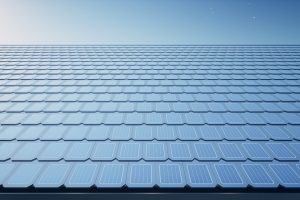
The rapidly increasing demand for electricity has put a strain on traditional energy sources, leading to concerns about sustainability and environmental impact. As we continue to witness the effects of climate change, it’s becoming increasingly important to explore alternative means of generating power.
Solar panels have emerged as a promising solution that not only harnesses the abundant energy of the sun but also offers individuals and communities an opportunity to reduce their reliance on the grid. We’ll see why it’s high time for us to seriously consider cutting our dependence on traditional electricity sources in favor of solar panels.
We’ll discuss their benefits, efficiency, cost-effectiveness, and how they can contribute to a more sustainable future.
The Rising Cost and Environmental Impact of Electricity from the Grid
As traditional energy sources such as fossil fuels become scarcer, their prices continue to increase. This translates into higher electricity bills for consumers, making it difficult for many to afford the necessity of power. The environmental impact of relying on the grid cannot be ignored. The burning of fossil fuels releases harmful greenhouse gases into the atmosphere, contributing to climate change and air pollution.
There’s also increasing awareness about the need for sustainable energy solutions to combat climate change. Solar panels offer a viable alternative by harnessing clean and renewable solar energy. Installing solar panels can provide individuals with considerable savings on their electricity bills over time while reducing their carbon footprint.
Transitioning towards renewable energies like solar power not only offers potential long-term financial benefits but also helps address urgent climate concerns by decreasing dependence on fossil fuels and mitigating harmful emissions that contribute to global warming.
What are Solar Panels and How Do They Work?
Solar panels are devices that convert sunlight into electricity. They consist of multiple solar cells, made up of layers of a semi-conductive material like silicon. When sunlight hits these cells, it excites the electrons in the atom and creates an electric current.
The process begins with light particles, called photons, striking the surface of a solar panel’s cells. These photons then transfer their energy to electrons in the atomic structure of the cell’s material. The transferred energy allows some electrons to break free from their atoms and create an electric current. Metal conductive plates within each cell collect this current and direct it out as usable electricity.
To maximize efficiency and capture more sunlight, solar panels face southwards or towards where they can receive maximum exposure to daylight throughout the day. Moisture-tight containers protect them from weather conditions such as rain or hail while allowing sunlight to pass through.
Solar panels convert sunlight into electrical energy through a process known as photovoltaic effect (PV). This renewable form of power generation reduces reliance on traditional sources like coal or gas while providing clean electricity that doesn’t contribute directly to greenhouse gas emissions.
How Solar Panels Can Save You Money and Reduce Your Carbon Footprint
Solar panels can save individuals and communities a significant amount of money on their electricity bills. Once installed, solar panels produce renewable energy without any additional cost.
This means that homeowners no longer need to depend solely on the grid for their electricity needs, thereby reducing or even eliminating their monthly electricity costs. Many governments offer incentives and subsidies for installing solar panels, further lowering the initial investment required and increasing the long-term savings.
Not only do solar panels provide financial benefits, but they also greatly reduce carbon footprints. Traditional methods of generating electricity often rely on fossil fuels such as coal and natural gas, which release harmful greenhouse gases into the atmosphere when burned. Solar energy is clean and emits zero emissions during operation.
Solar panels not only help save money but also play a crucial role in mitigating climate change by reducing reliance on traditional energy sources that contribute to global warming. As more people invest in this renewable energy solution, we can collectively make a significant impact in preserving our environment for future generations while enjoying financial benefits at the same time.
How We Can Help You Install and Maintain Solar Panels
We understand the importance of transitioning to renewable energy sources and recognize solar panels as a key solution for reducing reliance on the grid. Our team of experts is committed to helping you install and maintain solar panels, making it easier for you to contribute towards a sustainable future.
When it comes to installation, our highly skilled technicians will assess your property’s suitability for solar panels and provide customized solutions that maximize energy generation.
We consider factors such as roof orientation, shading, and available space to ensure optimal performance. Our team will handle all aspects of the installation process efficiently and professionally, ensuring that your system is up and running smoothly in no time.
Once your solar panel system is installed, we offer comprehensive maintenance services to keep it operating at peak efficiency. Regular maintenance not only extends the lifespan of your equipment but also ensures maximum energy output over time.
From cleaning panels to inspecting inverters and monitoring performance, our technicians are diligent in providing timely upkeep so that you can reap long-term benefits from your investment.
The Texas Incentives and Rebates for Solar Panels
Texas offers various incentives and rebates for those interested in installing solar panels. These programs aim to make solar energy more accessible and affordable, encouraging individuals and businesses to invest in renewable energy sources.
One incentive available is the Solar Energy Systems Property Tax Exemption, which allows property owners to exempt the added value of a solar panel system from their property taxes. This can result in significant savings over time.
Residents who generate excess electricity through their solar panels can take advantage of net metering programs. Under this arrangement, any surplus energy produced by the solar panels is fed back into the electric grid, allowing homeowners to receive credits on their utility bills. Texas also has a statewide tax credit program that provides financial assistance for up to 30% of installation costs for residential systems.
How Solar Panels Can Increase Your Home Value and Resilience
Solar panels have the potential to increase a home’s value by providing numerous financial benefits to homeowners. Installation of solar panels can result in reduced electricity bills, which is an attractive incentive for potential buyers. The long lifespan and durability of solar panels mean that they can be considered as a long-term investment, increasing the overall value of the property.
Another advantage of installing solar panels is their ability to enhance resilience during power outages. With traditional electricity grids often facing challenges such as extreme weather events or aging infrastructure, households with solar panels can maintain access to electricity even when the grid fails.
Investing in solar energy not only offers financial benefits but also contributes positively towards reducing carbon emissions and fighting climate change. The increased home value and resilience provided by solar panels make them an excellent choice for homeowners looking to both save money on energy costs and minimize their environmental impact.
Why Solar Panels are the Best Choice for Your Home
Solar panels are the best choice for your home due to their numerous benefits and advantages. Solar panels significantly reduce reliance on the grid for electricity.
Investing in solar panels is a wise financial decision. While there is an upfront cost associated with installation, the long-term savings and return on investment make it worthwhile. Solar energy offers homeowners reduced monthly electricity bills as they generate their own power.
Using solar panels contributes to a more sustainable future by minimizing environmental impact. Solar power does not produce harmful greenhouse gas emissions that contribute to air pollution or climate change. It also helps conserve water resources since traditional electricity generation often requires significant amounts of water for cooling purposes.
Solar panels offer homeowners an opportunity to become self-sufficient in terms of energy production while promoting sustainability and reducing carbon footprint. With increasing concerns about climate change and rising electricity costs, choosing solar panels is not only beneficial financially but also crucial for a cleaner planet.
from: https://mydividedsky.com/solar-panels-vs-electricity-why-its-time-to-cut-reliance-on-the-grid/


No comments:
Post a Comment